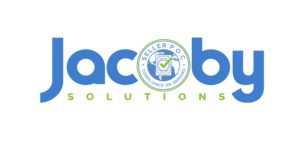Whistleblower Protection and CPSIA
Whistlebower Protection under the Consumer Product Safety Improvement Act (CPSIA)
Under the CPSIA, 15 U.S.C. §2087, whistleblower protection is offered for employees who are discharged or discriminated against by manufacturers, private labelers, distributors, and/or retailers, because they gave or are giving information to the employer, Federal Government, or attorney general regarding violations of any provision of this Act.
The CPSIA holds that it is unlawful for any person to manufacture for sale, offer for sale, distribute for sale any consumer product not in conformity with an applicable consumer product safety standard as outlined under this statute, or which has been declared as a banned hazardous product. Any person who believes that he or she was discharged or otherwise discriminated against in violation of this section may file a claim within 180 days after the date on which the violation occurs with any Occupational Safety & Health Administration (OSHA) office.
If the Secretary of Labor finds that the employer committed a violation of this statute, the Secretary shall order the employer to: take affirmative action to abate the violation, reinstate the complainant to his or her former position together with compensation (including back pay) and restore the terms, conditions, and privileges associated with his or her employment, and to provide compensatory damages.
If you are a manufacturer or distributor, you can minimize your risk by having a process in place for employees to report incidents or concerns without penalty.
1. Find this out
- Do you believe that your company really wants to find out about problems with your products or potential safety issues related to their use?
- Would you feel comfortable raising serious concerns to your manager or others in the company believing that they would welcome your concerns and then be committed to investigating and resolving them
Until you find out that most individuals answer this positively , your company has an important gap in its compliance program and won’ be maximizing its ability to prevent, detect and correct problems no matter how many hotlines, training sessions, policies and directives it implements. Getting positive, enduring responses to these questions is a matter of leadership, company culture, and daily behavior.
2. The goal is cultural, not administrative
The key focus should be on instituting a culture of compliance in your company. Processes and other administrative measures may help this develop but alone are not insufficient. Overall, the key is to have leaders demonstrate their commitment, individuals learn specific behaviors that help them find out about problems and for companies to establish their long term credibility by acting effectively when issues are brought to their attention.
The information provided above is relevant if you have a company with fifty employees or a company of three. If you are a small company and each employee wears several operational hats, it may not be practical to formally institute a compliance plan right away but it is important to outline policy, procedures and escalation process so that everyone knows who is responsible for what when issues arise. Having a playbook to follow will make it easier as you grow and as more people are added, things will become easier to manage. Brand protection is paramount to your company’s success and if you want to grow into a big company, it is best to start while you are small to keep compliance an integral part of your everyday business activities.
For help with your companies compliance plan, please contact Jacoby Solutions as we can help you put a plan in place so you never need have to worry about whistleblowers.
